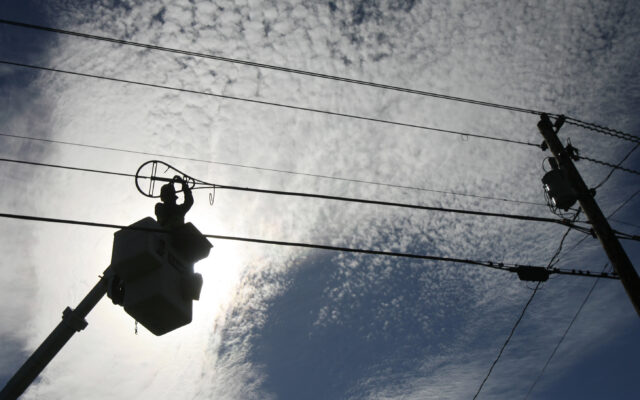
Fed up with poor internet, rural Maine towns team up to tackle problem
Tired of dealing with poor internet connectivity, town officials and residents in Piscataquis and Penobscot counties formed their own coalition to bring broadband to their regions. Now they need to find money and a provider.
Four towns — Corinna, Dover-Foxcroft, Dexter and Garland — have already signed on to the Maine Highlands Broadband Coalition. People from Abbot, Bowerbank, Brownville and Monson attended a meeting earlier this week and could decide to join later.
Rural communities in Maine have grappled with spotty internet access, but there’s been little momentum to craft solutions. With more people working remotely and needing access for school and telehealth, lack of broadband service means people aren’t getting the services they need. The coalition aims to bring affordable and reliable internet to all citizens and businesses in the area, said Chris Maas, a Dover-Foxcroft resident leading the effort.
“There are people in our region who don’t have electricity,” he said. “They want to live off the grid, and they’re happy. If they don’t want to have broadband, they don’t have to have it. But if they want it, it ought to be there for them.”
Reliable internet could keep young people in the area and draw new families and businesses, said Maas, who serves on the Dover-Foxcroft Planning Board and Climate Action Advisory Committee.
About 20 people from eight towns, the Piscataquis Chamber of Commerce and the county’s economic development group attended the first coalition meeting Tuesday. The group discussed a $60,000 broadband planning study released in December that presented fiber as the only option to implement broadband countywide.
The Piscataquis County Economic Development Council pursued the study, in which consulting firm Casco Bay Advisors assessed broadband infrastructure throughout the county and suggested solutions. The effort ignored the 660 or so homes considered off the grid, though did provide a good starting point, Maas said.
To build out a broadband network, the coalition needs to identify a provider, such as Premium Choice Broadband, Great Works Internet or Axiom Technologies, and negotiate a contract. It must also consider alternative solutions for off-grid locations and areas that need immediate coverage, Maas said.
The group also needs to define goals and find funding through grants, local philanthropy, internet providers and other avenues, he said.
The coalition discussed ConnectMaine Authority broadband infrastructure grants totaling $15 million awarded last month that will serve about 6,000 locations across Maine.
These projects can serve as models, said Christa Thorpe, community development officer at the Rockland-based Island Institute. Thorpe guides Maine communities in seeking equitable, high-speed internet.
“In every case, the state’s job was to fill the gap after the communities and the internet providers had already figured out how they were going to pay for part of it,” she said. “They came to the state and said, ‘We are definitely committing this amount of money and we are asking you to contribute the rest.’”
The state did not cover the cost of entire projects because the need is greater than the amount of available funding, she said.
The next round of state broadband infrastructure grants is projected to be about $40 million, which is encouraging, said Sam Naumann, grassroots advocacy coordinator for the Maine Broadband Coalition. Money should become available in late summer or early fall.
Around $400 million is predicted to come to Maine for broadband over the next few years, with large amounts expected from the Infrastructure Investment and Jobs Act, Thorpe and Naumann said.
Communities that join the coalition will have stronger negotiating power with providers and a better chance at winning grants and other funding, Maas said.
The coalition invited 30 municipalities across Piscataquis, Penobscot and Somerset counties to join. They also invited the Piscataquis County Commissioners, who have expressed frustration with the broadband study and are pursuing their own avenues for internet expansion. The commissioners did not attend.
“This is going to be a lengthy, complicated project,” Maas said. “It’s going to require some talent and some time. The more that we can do, the quicker we can get this done. It’s us that need to drive this thing.”
The Maine Highlands Broadband Coalition’s first formal meeting is slated for June 7.